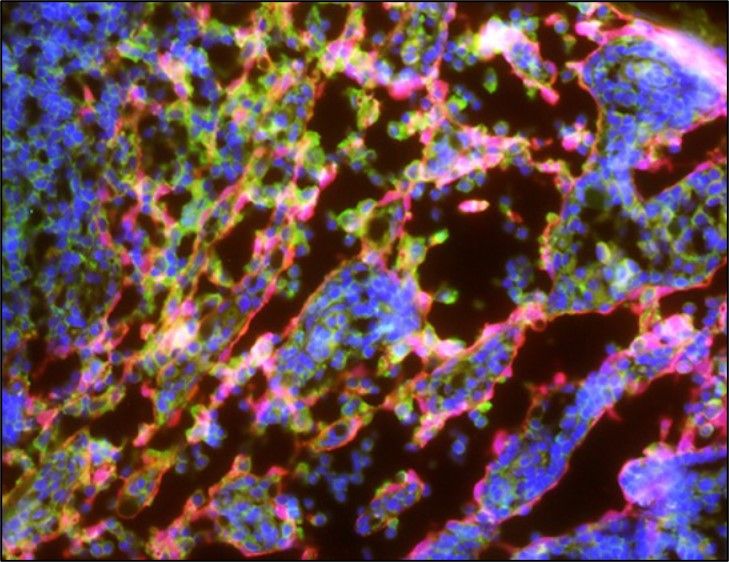Laura Santambrogio, Professor of Radiation Oncology
Summary
- Approximately 23.5 million people suffer from an autoimmune disorders
- Autoimmune diseases are a family of more than 80 chronic, often debilitating and, in some cases, life-threatening illnesses
- Current treatments are severely lacking
- Biogenic molecules are an effective alternative to steroids and broad immunosuppressive drugs
- 3-HKA, a biogenic compound derived from tryptophan, was identified by Dr. Santambrogio and colleagues as a novel viable candidate for treating multiple autoimmune disorders
- Dr. Santambrogio and colleagues have designed and developed over 30 3-HKA analogs and are actively screening for novel analogs that mimic the anti-inflammatory activity of 3-HKA
Technical Overview
- Tryptophan, an amino acid commonly found in food, is used by dendritic cells (DCs) to produce kynurenines, which have immune-suppressing activities
- Using both in vitro and in vivo models, the researchers observed that treating cells with IFN-ɣ led to high levels of proinflammatory cytokines such as tumor necrosis factor (TNF) and IL-6
- 3-HKA was shown to inhibit major inflammatory pathways including STAT1/NF-κB and activated PKA-mediated immunosuppression
- 3-HKA significantly reduced the amount of inflammation, and infiltration of immune cells, in mouse models of psoriasis, nephrotoxic nephritis, and Crohn's disease
- Preliminary results indicate that 3-HKA was particularly abundant in breast and lung cancer cells, which suggests that cancer cells may produce this molecule to evade antitumor immune responses
Market Opportunity
- Roughly 8% of the American population is afflicted by an autoimmune disorder
- Current treatments for autoimmune disorders are lacking and often treat symptoms of disease rather than the root cause
- 3-HKA is a multi-functional compound that shows promising efficacy for treating autoimmune disorders
- Blocking 3-HKA also shows promising efficacy against cancer
- Dr. Santambrogio’s work paves the way for the development of novel molecules that mimic 3-HKA
Partnering Opportunity
Weill Cornell Medicine is seeking an industrial partner with deep domain expertise and a presence in the autoimmunity space to further develop novel compounds that mimic 3-HKA

Figure 1: Immunofluorescence of a lymph node shows lymphatic endothelial cells contain the enzyme (labeled in green) that generates 3-HKA.
Resources
Contact Information

For additional information please contact
Donna Rounds
Associate Director, Business Development and Licensing
Phone: (646) 780-8775
Email: djr296@cornell.edu

